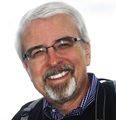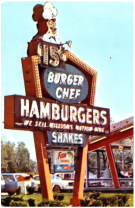
My first job was flipping hamburgers at a neighborhood fast food restaurant; I was a pimple-faced Junior in High School. Except for time to attend college (and sometimes even while in college), I had, since, always been accountable to an employer. That came to well over forty years as a contributing member of the paid workforce. I would expect that this is typical for many in the workaholic Baby Boomer generation. Add to that eleven years of college curriculum, CEU courses here-and-there, and uncounted training accomplishments. After a lifetime of education, skills development, and energetic work in increasingly challenging positions of greater and greater responsibility, I retired from my career job in 2015 -- without the acne, but with lots of gray hair, instead. In just a period of one day, the most lengthy chapter of my life came to a close. I was "retired."

Remember Ecclesiastes 3
In preparation for this new season of life, I did all of the customary research that everybody else facing the gauntlet of retirement planning is likely to. There is a lot of topical “chatter” on the Internet – you can get more than your minimum daily dosage on just a few sites. I found some of the Internet “chatter” credible, and pasted it to my personal retirement punchlist. Some advice I gleaned from reading the book Simplify by Bill Hybels; Bill offers insight for de-cluttering the priority areas of your current lifestyle in order to create a retirement with clear purpose, richer relationships, greater peace, and more energy. That is pretty good advice, I thought. AARP has a lot of information, as well. As new articles, books, and websites intrigued me, every couple weeks or so I seemed to be making edits to my retirement punchlist.
To help those who may be navigating this same path, I offer a slice of that punchlist with ten of my accumulated thoughts:
In preparation for this new season of life, I did all of the customary research that everybody else facing the gauntlet of retirement planning is likely to. There is a lot of topical “chatter” on the Internet – you can get more than your minimum daily dosage on just a few sites. I found some of the Internet “chatter” credible, and pasted it to my personal retirement punchlist. Some advice I gleaned from reading the book Simplify by Bill Hybels; Bill offers insight for de-cluttering the priority areas of your current lifestyle in order to create a retirement with clear purpose, richer relationships, greater peace, and more energy. That is pretty good advice, I thought. AARP has a lot of information, as well. As new articles, books, and websites intrigued me, every couple weeks or so I seemed to be making edits to my retirement punchlist.
To help those who may be navigating this same path, I offer a slice of that punchlist with ten of my accumulated thoughts:
- Downsize the home; move to a community that is more suited to your retirement lifestyle (walking distance to shops/restaurants, abundance of outdoor activities, close to medical facilities, access to public transportation, low crime rate, availability of theatre, music, the arts, etc.). When you downsize your home you are also downsizing maintenance, utility expense, and repairs! Don’t forget that if you change states you may be able to avoid state taxes, but that you may need to update your Wills, etc.
- Get a Kindle – I ended up with an iPad, but the idea is the same. I read a lot and there is no easier way to keep a library of books handy than on one of these small tablets.
- Attend a course (or two) on the mechanics of Social Security. For the majority of us, it is fable to think that taking your benefit early will reap the highest lifetime benefit. It is surprising how many people jeopardize their ability to maximize these “free” benefits by failing to understand them, and failing to plan how/when to engage them. A great place to start is on the “Retirement Planner” page of the Social Security Administration website.
- Follow the 4% rule; no debt. Keep your budget and get out of debt; learn how to live joyfully within God’s provision for you. Being debt free and living below your income enables you to give more, do more, and be more spontaneous.
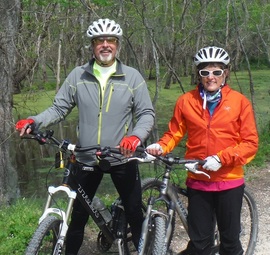
5. Make time for recreation and exercise. This was important for me. Since my childhood, I have been addicted to adventuring out-of-doors by bicycle, kayak, hiking trail, etc. In retirement, recreation and exercise are one-in-the-same; it is daily routine for my wife and me. A wide variety of activities keep our muscles toned, our brains alert, and our outlook fresh. And it's fun!
6. Identify your Biblical Community – not just a place to worship on Sunday but also a close-knit part of the Body with whom you can celebrate, pray with/for, and encourage others, and where they can do the same for you.
7. Research available Health Insurance programs and costs. If you are pre-medicare age, this may be a factor in determining where you might relocate. At the present, there are states that are more affordable than others, even under the ACA.
6. Identify your Biblical Community – not just a place to worship on Sunday but also a close-knit part of the Body with whom you can celebrate, pray with/for, and encourage others, and where they can do the same for you.
7. Research available Health Insurance programs and costs. If you are pre-medicare age, this may be a factor in determining where you might relocate. At the present, there are states that are more affordable than others, even under the ACA.
|
|
8. Review your life verse - update if necessary. You may want to find a new verse that fits with your new life season (retirement). Live your life verse! Example: “I perceived that there is nothing better for them to do than to be joyful and to do good as long as they live; also that everyone should eat and drink and take pleasure in all of his toil – that is God’s gift to man.” Ecclesiastes 3:12-13
9. Practice volunteerism – do something that will “fill your bucket,” as Hybels says. Keep busy. If you do not know where your passion is, find it. Turn it into action -- turn your energy and conviction into rewarding, worthwhile work. Have fun! Give back a little -- It's great! 10. Remember, if you do your part, God will do His part, and you will have a fulfilling retirement season. |

One year later - the bittersweet reality.
As you can see from my abbreviated punchlist, when it comes to pre-retirement planning, most of the retirement “chatter” that I found seemed to be about planning your lifestyle change (goals, timeline, costs/money, family issues, etc.). There were also websites specific to navigating health insurance, understanding social security, and managing your retirement finances. I found endless sites on how to “stretch a dollar” and what to eat to keep strong bones, and not to eat to keep a strong heart. More than once I glanced at an article that could guide me through lists of the best retirement communities, and help me to find that ONE community that best matched my “senior lifestyle," whatever that is. “I got this…,” I convinced myself, “How much Pickle-Ball can you play, anyway?!?”
With about eighteen months of thoughtful planning and bittersweet anxiety, I most eagerly entered retirement, that BIGGEST of life transitions – even bigger than your voice changing or getting your driver’s license – heading towards my next chapter as a qualifying member of the “senior discount club." Though not in the first few months, I eventually began to realize something quite unexpected, however. Something that I had not planned for. Little hints at first. Abbreviated conversations. Small gestures from others. Now it is 2016, one year after retirement, and I am pretty sure that my purpose in life has been changed....
As you can see from my abbreviated punchlist, when it comes to pre-retirement planning, most of the retirement “chatter” that I found seemed to be about planning your lifestyle change (goals, timeline, costs/money, family issues, etc.). There were also websites specific to navigating health insurance, understanding social security, and managing your retirement finances. I found endless sites on how to “stretch a dollar” and what to eat to keep strong bones, and not to eat to keep a strong heart. More than once I glanced at an article that could guide me through lists of the best retirement communities, and help me to find that ONE community that best matched my “senior lifestyle," whatever that is. “I got this…,” I convinced myself, “How much Pickle-Ball can you play, anyway?!?”
With about eighteen months of thoughtful planning and bittersweet anxiety, I most eagerly entered retirement, that BIGGEST of life transitions – even bigger than your voice changing or getting your driver’s license – heading towards my next chapter as a qualifying member of the “senior discount club." Though not in the first few months, I eventually began to realize something quite unexpected, however. Something that I had not planned for. Little hints at first. Abbreviated conversations. Small gestures from others. Now it is 2016, one year after retirement, and I am pretty sure that my purpose in life has been changed....

I don’t recall any internet “chatter” about changing my life purpose.
For most of us Boomers, our career provided intellectual stimulation, daily challenges, and opportunities to meet and beat goals. We were on a mission -- to achieve metrics and produce more than last year. That energized us, right? That fulfilled us and kept us excited about going into the office every morning, right? And, for better or for worse, when someone asked, I could say that I was a paralegal, or that I worked in Human Resources, or that I was a Vice President of this or that, and immediately everyone had a sense of my personality, my education, my career, and how I may have effected my inner drive, purpose, and meaning. In months and months of pre-retirement reading, research, and planning, I did not come across one single article about changing your life purpose. But as I progressed in retirement, I began to sense that there was more of me that was changing in this new season of life. This would be a season where there is no career that contributes to your fulfillment, identity, purpose and validation. That would have to come from elsewhere.
Retirement Reality 101.
What do you say when someone asks (and they often have), “What did you do?...”. In retirement, I have struggled with that question. I was surprised how important it is for many of the people that you meet to want to categorize you in some way. And to simply state that you are “retired” is most often an unacceptable, and/or incomplete answer. People need a sub-category for you. People want to put you in some kind of "box." Right or wrong, that is the way the world thinks. The struggle for me is that the platforms, titles, and positions I held were not how I defined my purpose, or my value to my organization and to the people with whom I had worked. Throughout my career, my job was to serve others, to help them solve problems, and to guide them towards a solution (clients) or success (colleagues), or both. From that I was fulfilled. That was my passion.
For most of us Boomers, our career provided intellectual stimulation, daily challenges, and opportunities to meet and beat goals. We were on a mission -- to achieve metrics and produce more than last year. That energized us, right? That fulfilled us and kept us excited about going into the office every morning, right? And, for better or for worse, when someone asked, I could say that I was a paralegal, or that I worked in Human Resources, or that I was a Vice President of this or that, and immediately everyone had a sense of my personality, my education, my career, and how I may have effected my inner drive, purpose, and meaning. In months and months of pre-retirement reading, research, and planning, I did not come across one single article about changing your life purpose. But as I progressed in retirement, I began to sense that there was more of me that was changing in this new season of life. This would be a season where there is no career that contributes to your fulfillment, identity, purpose and validation. That would have to come from elsewhere.
Retirement Reality 101.
What do you say when someone asks (and they often have), “What did you do?...”. In retirement, I have struggled with that question. I was surprised how important it is for many of the people that you meet to want to categorize you in some way. And to simply state that you are “retired” is most often an unacceptable, and/or incomplete answer. People need a sub-category for you. People want to put you in some kind of "box." Right or wrong, that is the way the world thinks. The struggle for me is that the platforms, titles, and positions I held were not how I defined my purpose, or my value to my organization and to the people with whom I had worked. Throughout my career, my job was to serve others, to help them solve problems, and to guide them towards a solution (clients) or success (colleagues), or both. From that I was fulfilled. That was my passion.

In retirement, I persisted in trying to find ways to help others become [more] successful. I struggled to explain what was to me a logical extension of my work as passions of my career. I defended my pre-retirement life purpose, drive and meaning as they are/were foundational inside me. For months, I experimented by offering different versions of a one-sentence answer to the “What did you do?” question that would illustrate the value of my career was based on the success of my colleagues, my company, and my clients, and not on my title.
I failed time after time. I could not find a very good way to explain it.
I have a great sense that I had been in the will of God during my career. I naturally assumed that what He was able to accomplish through me in my career would be fundamentally similar to what I could offer to others in my retirement. As I had been blessed, I wanted to bless others. Selfishly, I also hoped for validation and fulfillment from similar sources, I might add. "Why couldn't my education and experiences be a faithful building block opportunity?", I wondered. "I had been able to coach and mentor so many of those who had crossed my path," I rationalized. But while I was able to establish rapport on a couple occasions, it was becoming clear to me that, in retirement, my value to others was likely going to "retire," as well. I began to probe for God's vision for the next season of my life.
“Allow me to ramble, and then mock on…” Job 21:3
In the first year after I left my career, I stumbled upon many post-career “realities” that I had not discovered in my pre-retirement research; it turned out that my punchlist was far from complete. I confess, some of these “realities” came as somewhat of a surprise to me. While some of these are worthy of being on the punchlist, some are mere observations that I had not before considered. I managed to remember to jot down some of them as they occurred to me:
I failed time after time. I could not find a very good way to explain it.
I have a great sense that I had been in the will of God during my career. I naturally assumed that what He was able to accomplish through me in my career would be fundamentally similar to what I could offer to others in my retirement. As I had been blessed, I wanted to bless others. Selfishly, I also hoped for validation and fulfillment from similar sources, I might add. "Why couldn't my education and experiences be a faithful building block opportunity?", I wondered. "I had been able to coach and mentor so many of those who had crossed my path," I rationalized. But while I was able to establish rapport on a couple occasions, it was becoming clear to me that, in retirement, my value to others was likely going to "retire," as well. I began to probe for God's vision for the next season of my life.
“Allow me to ramble, and then mock on…” Job 21:3
In the first year after I left my career, I stumbled upon many post-career “realities” that I had not discovered in my pre-retirement research; it turned out that my punchlist was far from complete. I confess, some of these “realities” came as somewhat of a surprise to me. While some of these are worthy of being on the punchlist, some are mere observations that I had not before considered. I managed to remember to jot down some of them as they occurred to me:
- It took a long six months to work the stress-knot out of my gut that corporate America had planted. It was a welcomed “knot” and I wore it as a badge of honor for years and years. But it felt great when it was finally gone!
- Collegial communication about business trends, the stock market, and world events is less detailed, more emotional, and far more opinionated in retirement.
- Sadly, I feel as though my stimulation for intellectual growth may have plateaued. As an academic, I was always comfortable being the "old guy" in the college classroom. Now, I cannot see myself going back to college. I have to read more “to keep up” and just to keep my ol’ brain juices flowing. In retirement, there are times when I cannot tell you what day of the week it is!
- I had always been a student of Leadership. Like ours, I assumed that all organizations had great leadership. Now, as I engage with volunteer organizations around the country, I am shocked by the commonness and acceptance of unhealthy leadership. It is frustrating to watch … I want to help so badly.
Reality punches me in the gut.
And then the hardest realities of retirement reared their heads. Creating teams to build solutions or to solve problems was more fun for me than I had realized at the time. People are amazing! Everyone comes to the conference room table with a different set of knowledge and skills. It is how this aggregation of complementary abilities makes things “happen” that was so personally invigorating. There is little call for team building and large-scale problem-solving in retirement, fun, or not. I miss the success' of the team and the satisfaction that it brought to me. This joy is behind me now.
And then the hardest realities of retirement reared their heads. Creating teams to build solutions or to solve problems was more fun for me than I had realized at the time. People are amazing! Everyone comes to the conference room table with a different set of knowledge and skills. It is how this aggregation of complementary abilities makes things “happen” that was so personally invigorating. There is little call for team building and large-scale problem-solving in retirement, fun, or not. I miss the success' of the team and the satisfaction that it brought to me. This joy is behind me now.

Nobody comes to me to me for advice anymore. People (colleagues, employees, clients, team members, candidates for employment, business associates, etc, etc, etc,…) “needed" me when I was "tops" in the corporate world. I coveted the opportunity to help, improve, or make a solution come together for someone. These conversations opened the door for countless training, consulting, and some deep friendships over the years. But now, nobody needs me, at all.
What happened to being sought out as a mentor? ...to passing-down the legacy of your knowledge and experiences? In my years, I was trusted in countless mentoring opportunities. Today, I aspire to partner with, engage, challenge, and encourage young leadership. But finding ways to be “significant” in someone else’s life has required much unrewarded effort. So many of today’s “younger generation” are uncomfortable with face-to-face advocacy. My Sphere of Influence – once hundreds upon hundreds of people -- is now just my family and a dog (if only they would listen!).
What happened to being sought out as a mentor? ...to passing-down the legacy of your knowledge and experiences? In my years, I was trusted in countless mentoring opportunities. Today, I aspire to partner with, engage, challenge, and encourage young leadership. But finding ways to be “significant” in someone else’s life has required much unrewarded effort. So many of today’s “younger generation” are uncomfortable with face-to-face advocacy. My Sphere of Influence – once hundreds upon hundreds of people -- is now just my family and a dog (if only they would listen!).
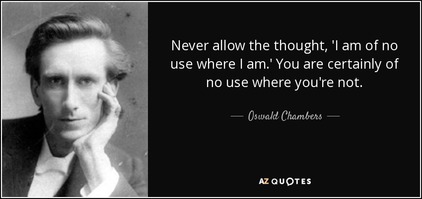
My retirement punchlist was incomplete.
In spite of intentional efforts and years of planning to avoid an insular retirement, the most significant element of my transition into this long-anticipated life season was shocking to discover. It was on no website. I had given it no thought. It hit me as if I had been punched in the gut and all air was lost. All I wanted was to take the gifts that God had given me and multiply them by giving back.
But it had started to become clear that some of my God-given talent would wan in unintentional isolation. Years of college, special training, and workplace experiences that I thought were preparing me for a post-career life as teacher, mentor, coach, and/or advocate would actually slacken within my quiver of leadership skills. I desired to be in the middle of it all, whatever the "all" that God had designed would be. Instead, I was in the middle of a bigger season of change than anticipated.
In spite of intentional efforts and years of planning to avoid an insular retirement, the most significant element of my transition into this long-anticipated life season was shocking to discover. It was on no website. I had given it no thought. It hit me as if I had been punched in the gut and all air was lost. All I wanted was to take the gifts that God had given me and multiply them by giving back.
But it had started to become clear that some of my God-given talent would wan in unintentional isolation. Years of college, special training, and workplace experiences that I thought were preparing me for a post-career life as teacher, mentor, coach, and/or advocate would actually slacken within my quiver of leadership skills. I desired to be in the middle of it all, whatever the "all" that God had designed would be. Instead, I was in the middle of a bigger season of change than anticipated.
God had made investments in me. Many of these came as spiritual gifts. In my naïveté, I did not expect God to make tweaks to these Gifts, but there they were, right before my eyes. I recognize that my work is not my own but a gift from God to be used for His Kingdom and the good of world, but I confess my comfort with the "old" Ken. Without a professional platform, human validation, and with so much unresolved inner drive, satisfaction, and meaning, my thoughts of what my post-career Purpose could be seemed to take new direction. This is a change I did not see coming, but Billy Graham once said, "Christ has placed you there because Christ has a job he wants to do there, and He can only do it in your body...." And here I am. I understand that these kinds of life-changes are Planned by a higher authority.
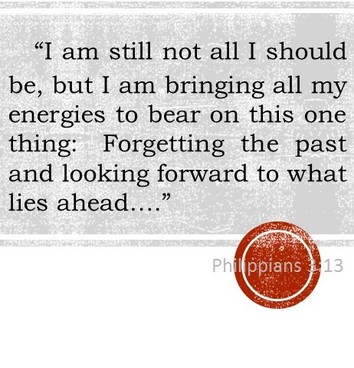
It was in a period of study and reflection that it came to me. My job is simple: to be available to serve others. And my Purpose is whatever those whom I am serving have asked me to do. I did not need an office or a professional title for security or credibility, I only needed to be aware of the people and circumstances surrounding me. "Yes, Lord ... I get it now!"
I am excited to accept the Call. I am honored to accept the greatest of Retirement Realities: God desires to preserve His investment in me, not by forsaking my Gifts, but by changing my context. During this post-career transition, where I had searched so hard for [re]alignment with God's will, I rested on the absolute confidence of this verse, "So whether you eat or drink, or whatever you do, do it all for the glory of God."
And this item on my punchlist is unchanging.
I am excited to accept the Call. I am honored to accept the greatest of Retirement Realities: God desires to preserve His investment in me, not by forsaking my Gifts, but by changing my context. During this post-career transition, where I had searched so hard for [re]alignment with God's will, I rested on the absolute confidence of this verse, "So whether you eat or drink, or whatever you do, do it all for the glory of God."
And this item on my punchlist is unchanging.
|
If you are interested in how our retirement life-style complements
our ministry of encouragement, service, and steward leadership, please feel free to contact us at [email protected]. |

